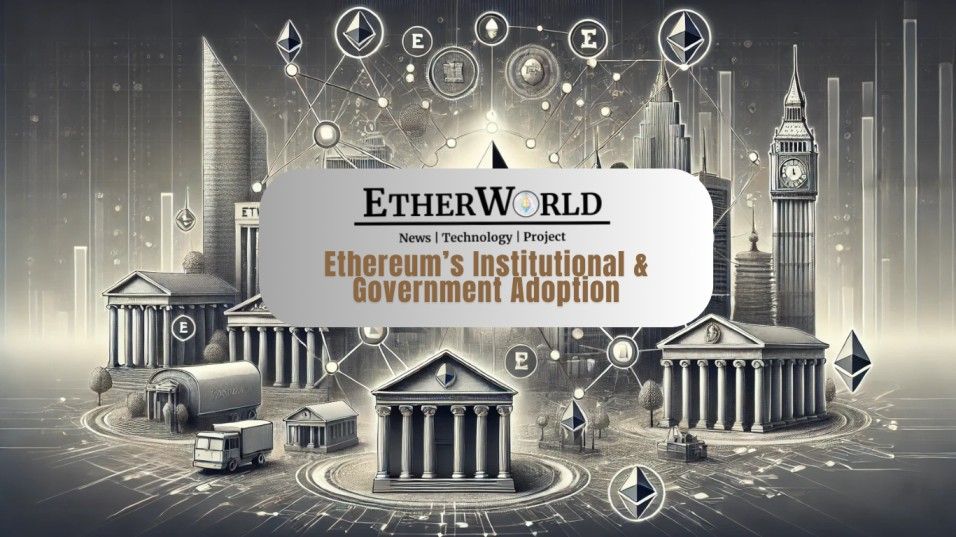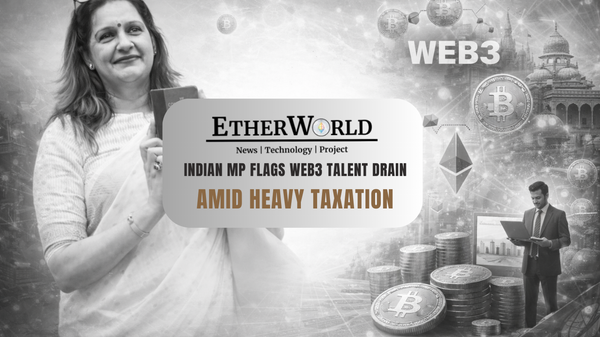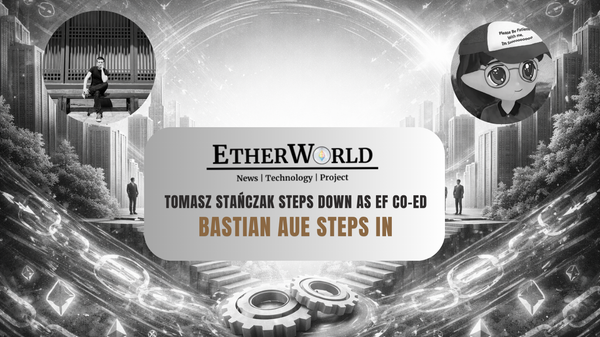Ethereum, once known primarily for DeFi and smart contracts, is now making its way into mainstream finance. Large financial institutions, corporations, and even governments are exploring Ethereum’s potential for asset management, payments, and digital currencies. This shift is driven by the need for more efficient, transparent, and programmable financial systems.
Why Institutions & Governments Are Interested in Ethereum?
One of the most significant benefits of Ethereum is asset tokenization. Financial assets such as stocks, bonds, and real estate can be represented as blockchain tokens, making them easier to trade, fractionalize, and settle.
BlackRock and Franklin Templeton are already exploring Ethereum-based tokenization for investment funds, which could eventually become a standard for asset management.
Cross-border transactions are another area where Ethereum is making an impact. Global payments today depend on networks like SWIFT, which can take days to process transactions and involve high fees.
Ethereum-based stablecoins and blockchain payment networks allow for near-instant settlements at lower costs. JPMorgan’s Onyx blockchain is also an example of how blockchain is improving financial efficiency. Banks like Goldman Sachs are also actively researching Ethereum’s potential for financial instruments.
Governments Exploring Ethereum
Governments are beginning to experiment with Ethereum for applications such as CBDCs, land registries, and national financial infrastructure. Some countries are integrating Ethereum into their economic systems, while others are using its technology as a model for their own blockchain initiatives.
Several countries, including China, the European Union, and Singapore, are testing digital currencies that could modernize national payment systems. The United Arab Emirates and Saudi Arabia have piloted Ethereum-based cross-border CBDC transactions, allowing for faster and more transparent interbank settlements.
Financial instability and inflation have also driven governments to explore Ethereum-based stablecoins. In countries like Argentina and Nigeria, unstable national currencies make it difficult for citizens to store value. By adopting stablecoins built on Ethereum, these economies can offer a more reliable alternative to traditional banking systems.
Challenges to Institutional & Government Adoption
Despite its growing appeal, Ethereum still faces several obstacles before it can achieve large-scale institutional and government adoption. One of the biggest challenges is regulatory uncertainty. Many governments have yet to define clear rules regarding Ethereum-based financial products, leading to hesitation from major institutions. In the United States, the Securities and Exchange Commission has yet to fully determine whether Ethereum is a commodity or a security, making its legal status unclear.
Privacy concerns are another issue. While Ethereum’s blockchain is transparent by design, institutions and governments often require confidentiality for sensitive transactions. Emerging technologies like Zero-Knowledge Proofs (ZKPs) and privacy-focused rollups are being developed to enable private transactions while maintaining security.
Security and compliance requirements also need to be addressed. Financial institutions must comply with strict anti-money laundering (AML) and know-your-customer (KYC) regulations.
The Future of Ethereum in Global Finance
Ethereum’s role in financial markets is expected to grow significantly over the next few years. With ongoing developments in scalability, security, and compliance, more banks, governments, and corporations will likely integrate Ethereum into their financial operations.
One of the most promising developments is the expansion of tokenized financial assets. By 2030, experts predict that trillions of dollars in assets could be tokenized on Ethereum. Stablecoins and CBDCs built on Ethereum are also expected to become more widely used, replacing traditional fiat currencies in digital transactions.
Conclusion
Major financial institutions, MNCs, and governments are recognizing Ethereum's potential and investing in its adoption. With upcoming upgrades like Base and Native Rollups, Danksharding, and privacy-enhancing features, Ethereum is well-positioned to become the foundation of a more transparent and efficient financial ecosystem. As we move forward, Ethereum’s integration into mainstream finance is no longer a question of if, but when.
Related Articles
- India to Change Crypto Strategy as Global Trends Shift
- Cryptocurrency Taxation in India
- US feds seized $1 billion worth Bitcoin of Silk Road
- US Senators warn Trump admin on Venezuelan cryptocurrency
- UAE Dirham-Backed Stablecoin DRAM is now available on Uniswap and PancakeSwap
Disclaimer: The information contained in this website is for general informational purposes only. The content provided on this website, including articles, blog posts, opinions, and analysis related to blockchain technology and cryptocurrencies, is not intended as financial or investment advice. The website and its content should not be relied upon for making financial decisions. Read full disclaimer and privacy Policy.
For Press Releases, project updates and guest posts publishing with us, email to contact@etherworld.co.
Subscribe to EtherWorld YouTube channel for ELI5 content.
Share if you like the content. Donate at avarch.eth or Gitcoin
You've something to share with the blockchain community, join us on Discord!








